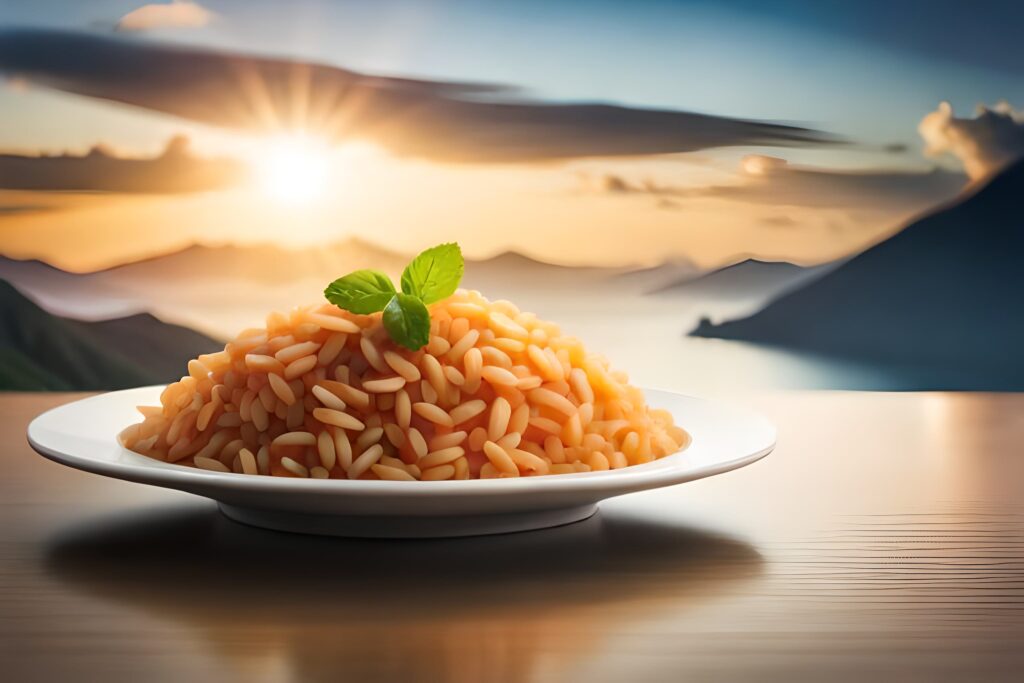AFFILIATE DISCLOSURE: Please note that some links on ozozeasy.com are affiliate links. We may receive a commission, at no extra cost to you, if you click through our links and make a purchase or sign up from one of our partners.

Tiny but mighty orzo is the culinary shape-shifter that deftly walks the walk between grain and pasta. Resembling luscious white grains of rice, this Italian-born treasure has charmed its way into soups, salads, and sweets worldwide. Whether you’re home cooking or a pro, here is absolutely everything you’ve ever wanted or needed to know about orzo and why it should have a revered place among your pantry shelves.
What Is Orzo?
Orzo Italian barley is a form of pasta that was originally produced from durum wheat semolina. Although it has a rice-like shape, it is 100% pasta created by extruding dough through molds. It’s also known as risoni or large rice in certain regions, adding to its grain-like mystique.
Key Characteristics
Size: Approximately the size of a pine nut or grain of rice
Texture: smooth and lightly chewy when al dente cooked
Varieties: In traditional white, whole wheat, and tricolor spinach-tomato-infused
A Brief History: From Mediterranean Roots to Global Fame
Orzo’s origins are in Italy, where it has been a staple in soups like minestrone and pastina for centuries. It later spread throughout the Mediterranean.
Greece: Stars in Youvetsi Baked Meat with Tomato Orzo
Turkey: is used in ehriye orbas, chicken, and orzo soup.
The Middle East: features in pilafs and stuffed vegetables.
In the 20th century, orzo also became popular all over the world as chefs enjoyed its versatility, using it in everything from risotto-style orzotto to cold salads.
Why Cooks Love Orzo
- Quick: Cooks in 8–10 minutes, ideal for weeknights.
- Versatile: Performs in soups, salads, casseroles, and desserts.
- Texture: Retains its shape while soaking up flavors like a sponge.
- Substitute: rice, couscous, or quinoa interchangeably.
Nutritional Profile
A 1/4-cup (50g) serving of dry orzo provides:
- Calories: ~200
- Carbs: 42g
- Protein: 7g
- Fiber: 2g (3g for whole wheat)
- Gluten: contains gluten (unless otherwise marked gluten-free).
Pro Tip: Serve with veggies and protein for well-balanced meals.
How to Cook Orzo
1. Boil: Cook in salted water like pasta: (6-8 cups of water per cup of orzo). Drain
2 Toasts: Sauté dry orzo in olive oil for 1-2 minutes to add nuttiness.
3. Orzotto: Simmer with broth, stirring like risotto for a creamy dish.
Don’t overcook it so (it becomes mushy), or don’t rinse it so that salads are (clumpy).
7 Delicious Ways to Use Orzo
- Lemon Garlic Orzo: Toss cooked orzo with lemon zest, Parmesan, and fresh herbs.
- Greek Orzo Salad: Mix with cucumbers, cherry tomatoes, olives, feta, and red wine vinaigrette.
- Orzo Soup: Simmer chicken broth, spinach, and shredded rotisserie chicken.
- Orzotto: Creamy mushrooms, peas, and a splash of white wine
- Stuffed Peppers: Fill bell peppers with orzo, ground turkey, and marinara.
- Mediterranean Bake: Layer: orzo, roasted veggies, mozzarella, and marinara
- Dessert Pudding: Cook with milk, honey, and cinnamon for a rice pudding twist.
Buying and Storing Tips
Where to Find It: Pasta aisle or international foods section
Storage: Keep dry orzo in an airtight container for up to 2 years. Refrigerate cooked orzo for 35 days.
Dietary Options: Seek whole wheat for fiber or gluten-free blends, e.g., brown rice orzo.
Orzo vs. Similar Ingredients
Couscous: Smaller, granular, and quicker cooking
Arborio rice: starchier risotto.
Pastina: tinier pasta for broths, e.g., stelline.
Conclusion
Orzo draws because it can be adapted to comforting comfort food or innovative new dishes. It’s a canvas of flavor for cultures, whether you’re in culture. nbsp; For a hearty soup, a revitalizing afternoon salad, or a decadent faux risotto Get it next time when you glance at that rice-shaped pasta. Pick it up. Your kitchen and taste buds will be appreciative.
Little pasta, big possibilities. Orzo weeknight star
Disclaimer: The author of this article is not responsible for any wrong act. Try this at your own risk.

0 Comments